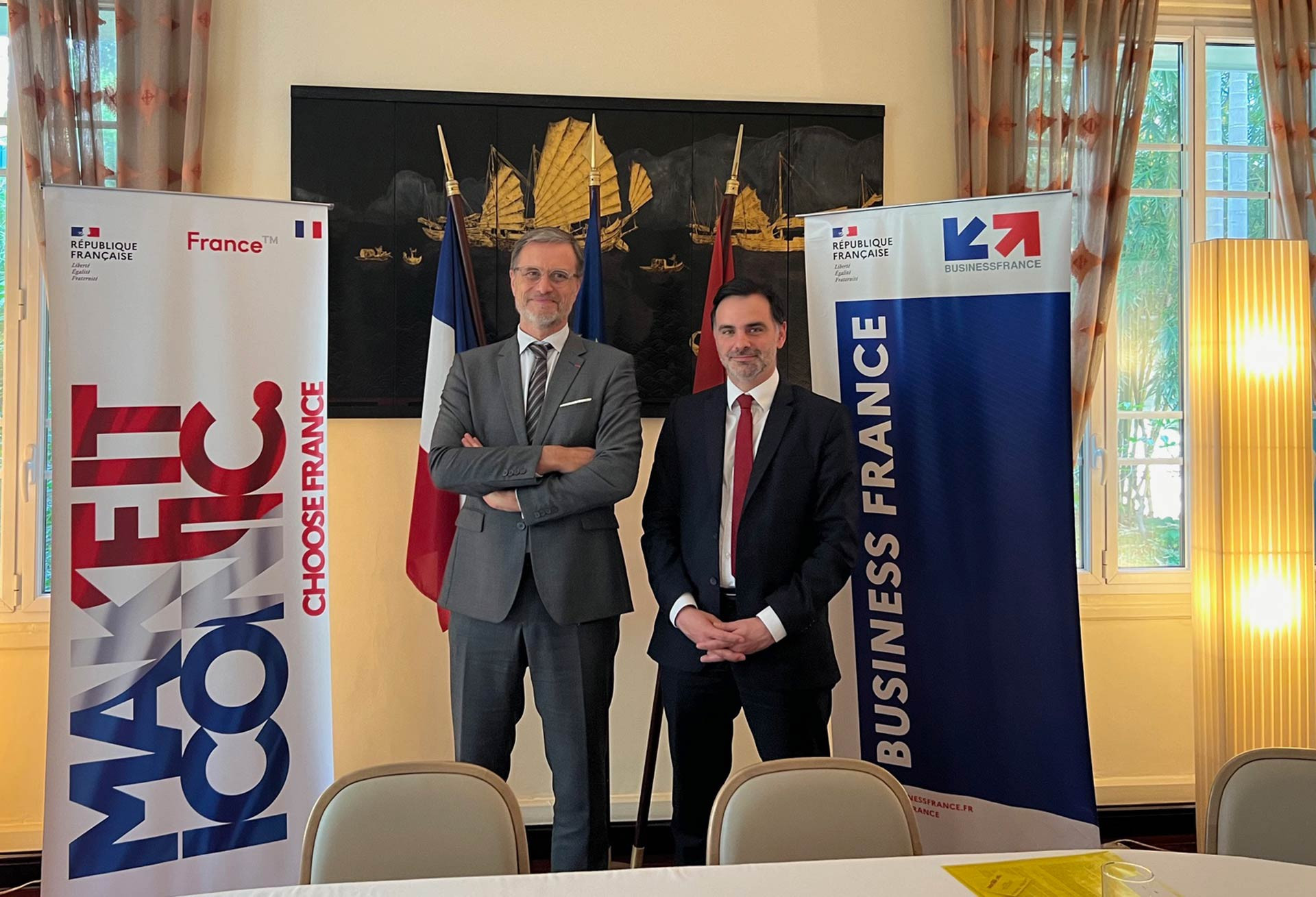
Vietnam has been a signatory of the EU-Vietnam free trade agreement (EVFTA) for three years. What is the French assessment about the process of Vietnam implementing the agreement? What is the significance of the agreement for the Vietnam-France relationship?
The agreement not only bears economic but also political significance. There are only two countries in ASEAN, including Vietnam, joining EVFTA. This shows that the EU wants Vietnam to hold an important position in economic cooperation with the EU, while Vietnam has an important geopolitical position in relation with the EU.
EVFTA facilitates Vietnam’s approach to the European market, and supports Vietnam’s growth process to improve the socio-economic life quality.
Europe is one of the choosiest markets with high requirements not only on product quality but also social and environmental standards. Therefore, once Vietnam’s products can approach the European market, they will be able to penetrate other choosy markets in the world and develop international economic activities.
When implementing the agreement, we hope that no non-tariff barriers will be installed, which means that we not only comply with words written in the agreement, but also observe the spirit of the agreement.
A high number of French businesses have come to do business in Vietnam. As many as 230 French businesses have set up branches in Vietnam, employing 25,000 people. Of these, many are large corporations with the largest capitalization values on the French bourse.
France is the second largest European investor in Vietnam. There are two French groups of businesses in Vietnam. First, businesses participating in large projects, especially infrastructure development, such as the metro project in Hanoi. Second, the ones that design, assemble and import European materials to assemble products in Vietnam, such as Decathlon.
In 2023, France-Vietnam trade turnover exceeded $7 billion.
We are cooperating with two large Vietnamese corporations – VinFast and FPT Software. They have invested in France for a long time and have close relations with French businesses.
Some days ago, we had a working session with the Vietnam Trade Promotion Agency (Vietrade) and signed an MOU on the two sides organizing two-way surveys. We also met the Ministry of Industry and Trade and mentioned cooperation in the field of maritime.
What do you think about Vietnam’s investment environment? What are the favorable conditions and difficulties for French investors to do business in Vietnam?
There are some fields that are top priority by leaders of the two countries. The Vietnamese Prime Minister during his official visit to France in 2021 agreed with the French side on listing priority fields for trade and investment encouragement. More recently, during the phone talk last October, Vietnamese Party Chief Nguyen Phu Trong and French President also put forward priority directions for relations of the two countries, especially economic activities.
In that spirit, we wish to develop the France-Vietnam partnership in three fields.
First, strengthening Vietnamese sovereignty in all fields, including national defence.
Second, France wants to join forces with Vietnam to solve problems which are global challenges, such as climate change. Third, partnerships related to innovation. We have a lot of projects in energy and transport.
In current conditions, improving the investment environment is extremely important for Vietnam.
There are three important things that need to be done.
First, strictly comply with provisions in EVFTA. Second, strictly implementing intellectual property protection. Third, creating favorable conditions for high-quality workers’ entry, solving problems related to visas and work permits.
Could you please give some suggestions to help Vietnam develop strongly and show us the cooperation plans between Vietnam and France?
Over the last 30 years, Vietnam has been strongly determined for deep economic integration through doi moi (renovation). Vietnam’s economy is very open, so it has no other choice than to move forward.
However, Vietnam is facing some new challenges, including an aging population, emerging diseases, medical difficulties, and new requirements in healthcare.
In such conditions, Vietnam’s labor costs will increase. Vietnam should not develop its economy based on a cheap labor force anymore, but it needs to shift to an economic development model at a high level, and therefore, flexibility and adaptation needs to be heightened. France is ready to accompany Vietnam in preparing a high-quality labor force.
Lan Anh